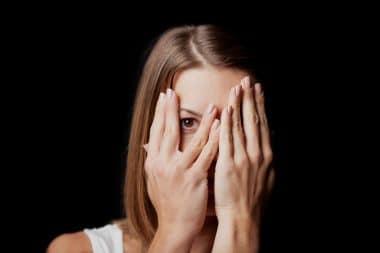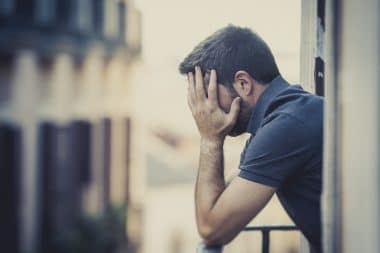Experiencing anxiety or feeling anxious is a part of life. Having anxiety disorders is a different story. There are a number of different signs that you may be suffering from anxiety, and there’s no doubt that they can vary depending on your situation. With this, self-awareness is key so you can seek help or self-regulate your feelings. Here are just some of the signs you might be suffering from anxiety:
1. Panic Attacks
If you have panic attacks, it is a likely sign of anxiety. Panic attacks can come on unexpectedly and can last anywhere from a few minutes to hours. When you’re feeling nervous, your body starts pumping adrenaline into your system, which causes your heart rate to increase. You may also start sweating and shaking, as well as feeling lightheaded and dizzy.
Sometimes you may feel that you cannot breathe properly. This can cause your stomach to expand and contract rapidly. It can also lead to hyperventilation, a condition where you can’t breathe very well. This can lead to a number of problems, including fainting, chest pains and even death.
2. Problems Concentrating or Focusing
If you have problems concentrating at school or work, you may have anxiety. It can be difficult to focus because you’re always worried about what could happen. You may find yourself avoiding other students and teachers, which can make you really feel alone and unwanted. This can also cause you to shy away from interacting with others in a romantic way as well. Because of this, you may become depressed, too.
3. Excessive Worrying
Excessive worrying is also a sign you might be suffering from anxiety. Generalised anxiety disorder is usually characterized by excessive and persistent worrying about events and activities, which include usual day-to-day activities. Sometimes, worrying can be blown out of proportions and is a challenge to control. With this kind of anxiety, it can also affect you physically as much as mentally.
4. Depression
Anxiety and depression are two mental disorders that are linked together. Anxiety can cause you to think negative thoughts repeatedly and worry too much, which can lead to depression as well. At the same time, if you have depression, you also tend to overthink and be anxious about life. Usually, if someone has depression, they also have anxiety because they share similar symptoms. Each will have its own cause, but the treatments are usually similar.
5. Restlessness
Another sign that you might be suffering from anxiety is restlessness. It’s a common symptom and usually manifests as feelings of being “on edge” or having the urge to keep moving. Anxiety also causes your brain to be hyperactive and leave you restless. Your thoughts also translate into physical signals, and that’s why you might have the urge to keep on moving.
6. Fatigue
Coupled with restlessness, you can easily become fatigued as well, which is another sign that you have anxiety. Once your energy is used up being restless or hyperactive, you can feel fatigued after. Usually, fatigue isn’t only caused by anxiety but also other disorders such as depression or insomnia.
7. Avoidance of Social Situations
Anxiety can also be exhibited in your social life. Signs of anxiety include avoidance of social situations. With anxiety, you might find yourself fearing or being anxious about upcoming events or social situations. This can also be accompanied with thoughts about being judged by others or being embarrassed in front of other people. Because of these fears manifested by anxiety, people with anxiety tend to avoid social events.
People with social anxiety may just appear calm and quiet in social events. While it may not seem obvious on the outside, people with anxiety feel very distressed and anxious on the inside during social events, especially when meeting new people.
8. Irrational Fears
It’s also common for people who have anxiety to have irrational fears about anything under the sun. This is because anxiety causes your brain to be hyperactive and overthink, which leads to irrational fears.
Phobias are actually defined as an extreme kind of anxiety or fear about something specific. These can be fears about heights or enclosed spaces. Other more extreme irrational fears include being in airplane or standing in line. At times, irrational fears caused by anxiety can interfere with your daily activities.
9. Tense Muscles
Being on edge most of the time will also translate to physical attributes. One of these are tense muscles. This is also a very common sign of anxiety. As your anxiety increases, your muscles also start to tense up because of stress. Then, as you go on treatments and reduce your worry, you’ll notice your muscles loosening up as well. If you want to see for yourself, you can check yourself out in front of a mirror when you’re feeling another panic attack or realize you’ve been worrying.
10. Feelings of Worthlessness
Anxiety can also affect your mood and self-esteem by feeding you feelings of worthlessness. This disorder can also affect your outlook or the way you see yourself in life. Feelings and recurring thoughts about how you’re not good enough are common for people with anxiety. Inappropriate guilt and self-hate are all common signs of anxiety. Anxiety isn’t just about things that are external, but also your internal view of yourself.
11. Interrupted or Inability to Sleep
Anxiety disorders can also cause some sleep disturbances. If you’re having trouble falling asleep or staying asleep, anxiety might be the culprit causing this. While anxiety and insomnia are linked to each other, data is still not enough to justify whether anxiety causes insomnia or if insomnia causes anxiety. However, it’s known that the two are very much connected to each other. Treating anxiety can also help with your sleeping patterns.
Conclusion
Spotting these signs will help you know whether or not you need help, especially when it gets in the way of your daily activities. In some cases, the problem may lie with anxiety that has led to a disorder, such as post-traumatic stress disorder, depression, substance abuse, or even anxiety that has been triggered by a serious accident. These conditions often require medical treatment to get back on track. Just know that you are not alone as you deal with these problems, and that you deserve to get help and support.








Reply